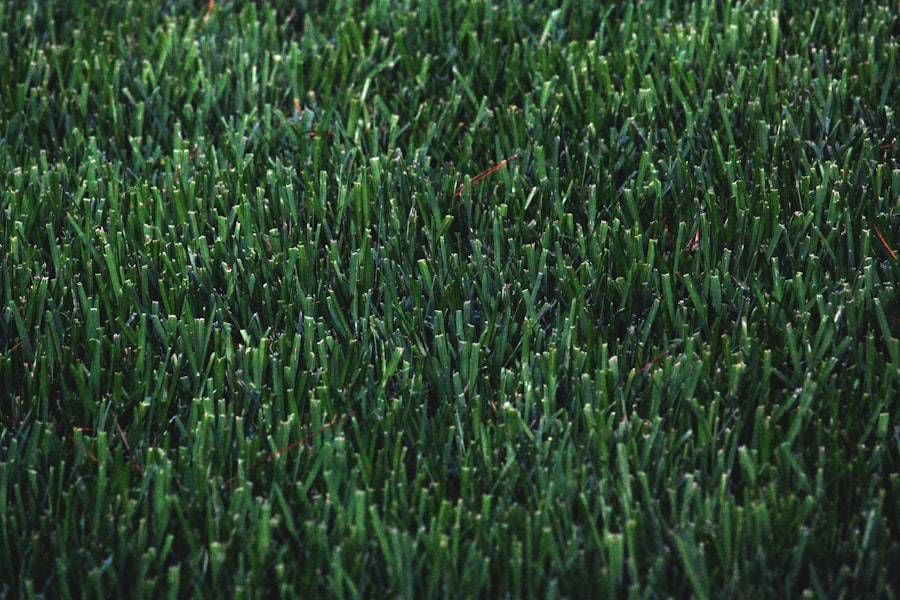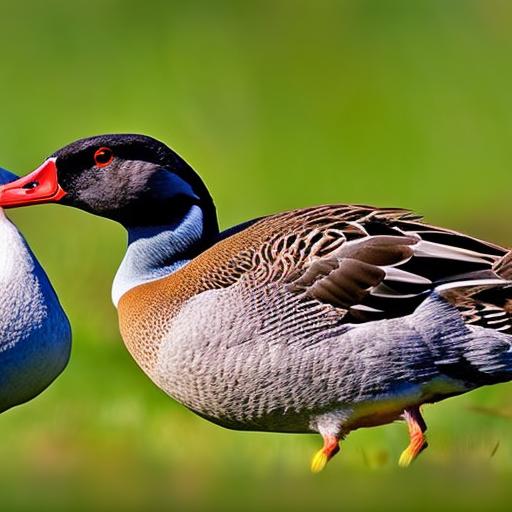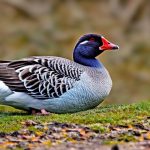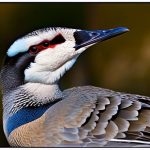Geese are beautiful creatures that are often admired for their graceful presence and majestic appearance. However, when they invade your lawn, they can quickly become a nuisance. Geese are attracted to open spaces, water, and food sources, which makes your lawn an ideal location for them to gather. While it may be tempting to let them roam freely, there are several reasons why you should take action to keep geese off your lawn.
Firstly, geese can cause damage to your property. They have a tendency to eat grass and trample on it, which can result in unsightly patches and bare spots on your lawn. Additionally, their droppings can be a major issue. Not only are they unsightly, but they can also carry diseases such as E. coli and salmonella, posing a health risk to you and your family.
Key Takeaways
- Geese can cause damage to lawns and pose health risks to humans.
- Understanding geese behavior can help in finding effective control methods.
- Physical barriers like fences and netting can keep geese off your lawn.
- Visual and auditory deterrents like scarecrows and noise makers can also be effective.
- Natural solutions like planting certain types of grass and using dogs can help control geese.
Understanding the behavior of geese
To effectively address the issue of geese on your lawn, it is important to understand their behavior. Geese are social animals that mate for life and are fiercely protective of their young. They form strong bonds with their mates and offspring, which means they will defend their territory vigorously.
Geese are attracted to open spaces because it allows them to have a clear view of potential predators. They also prefer areas near water as it provides them with a source of food and a place to rest. Understanding these preferences can help you identify areas on your lawn that may be particularly attractive to geese.
Negative impacts of geese on your lawn
Geese can have several negative impacts on your lawn. Firstly, their droppings can be a major issue. Not only are they unsightly and difficult to clean up, but they can also carry diseases such as E. coli and salmonella. This poses a health risk to you and your family, especially if you have young children who may come into contact with the droppings while playing outside.
In addition to the health risks, geese can also cause damage to your lawn. They have a tendency to eat grass and trample on it, which can result in unsightly patches and bare spots. This can be particularly frustrating if you take pride in maintaining a lush and green lawn.
Physical barriers to keep geese off your lawn
One of the most effective ways to keep geese off your lawn is by installing physical barriers. Fences, netting, and other structures can be used to create a physical barrier that prevents geese from accessing your lawn. These barriers should be at least three feet high to ensure that geese cannot fly over them.
When installing a fence or netting, it is important to make sure that it is secure and properly maintained. Geese are strong animals and can easily knock down or break through flimsy barriers. Regularly inspecting and repairing any damage will help ensure that the barriers remain effective.
Visual and auditory deterrents for geese
In addition to physical barriers, visual and auditory deterrents can also be effective in keeping geese away from your lawn. Scarecrows, reflective tape, and loud noises can all be used to scare geese and discourage them from landing on your property.
Scarecrows are a traditional method of deterring birds, including geese. They can be placed strategically around your lawn to create the illusion of a human presence, which will make geese feel less comfortable landing there. Reflective tape can also be effective as it creates flashes of light that can startle geese and make them feel unsafe.
Loud noises can also be used to scare geese away. This can be achieved by using devices such as air horns or motion-activated sprinklers that emit a loud noise when geese approach. The sudden noise will startle the geese and make them think twice about landing on your lawn.
Chemical repellents for geese

Chemical repellents can be effective in keeping geese away from your lawn, but they should be used with caution. There are several types of chemical repellents available, including sprays and granules, that can be applied to your lawn to deter geese.
However, it is important to note that chemical repellents can harm other animals and the environment if not used properly. It is essential to carefully read and follow the instructions provided by the manufacturer when using chemical repellents. Additionally, it is advisable to consult with a professional before using any chemical repellents to ensure that you are using the right product and applying it correctly.
Natural solutions for geese control
If you prefer to take a more natural approach to geese control, there are several options available. Planting certain types of vegetation can help deter geese from landing on your lawn. Geese prefer short grass, so planting taller grasses or native plants can make your lawn less attractive to them.
Using natural predators such as dogs and hawks can also help keep geese away. Dogs can be trained to chase away geese, while hawks can be used as a visual deterrent. However, it is important to note that using predators as a means of geese control should be done responsibly and ethically.
Behavioral modification techniques for geese
Geese can be trained to avoid certain areas through conditioning and other behavioral modification techniques. One effective method is to use a combination of visual and auditory deterrents, such as scarecrows and loud noises, to create an association between your lawn and an unpleasant experience for the geese.
Another technique is to use a trained dog to chase away geese whenever they land on your lawn. This creates a sense of fear and discomfort for the geese, making them less likely to return in the future. However, it is important to note that this method requires consistent training and supervision to be effective.
Creating a less attractive environment for geese
Another approach to geese control is to create a less attractive environment for them. This can be achieved by removing food sources and reducing open spaces on your lawn. Geese are attracted to areas with abundant food, so removing any sources of food, such as bird feeders or fallen fruit, can help deter them.
Reducing open spaces can also make your lawn less attractive to geese. This can be done by planting shrubs or installing landscaping features that create barriers and make it more difficult for geese to access your lawn.
Seeking professional help for geese control
If all else fails, seeking professional help from a wildlife control expert can be a viable option. These professionals have the knowledge and experience to effectively and safely remove geese from your property. They can assess the situation, recommend the most appropriate methods of geese control, and implement them in a safe and humane manner.
In conclusion, dealing with geese on your lawn can be a challenge, but there are many effective solutions available. By understanding their behavior and using the right techniques, you can keep your lawn free from geese and enjoy a beautiful outdoor space. Whether you choose to install physical barriers, use visual and auditory deterrents, or seek professional help, taking action to keep geese off your lawn will help protect your property and ensure the health and safety of you and your family.
If you’re looking for effective ways to keep geese off your lawn, you might also be interested in learning about turning a shed into a chicken coop. This article from Poultry Wizard provides valuable insights on how to repurpose a shed into a safe and comfortable home for your chickens. By creating a dedicated space for your feathered friends, you can not only protect your lawn from geese but also enjoy the benefits of fresh eggs and the joy of raising chickens. Check out the article here to discover more about this fascinating topic.
FAQs
What are some common problems caused by geese on lawns?
Geese can cause damage to lawns by eating grass, leaving droppings, and creating holes in the ground. They can also be aggressive towards humans and pets.
What are some methods for keeping geese off lawns?
Some effective methods for keeping geese off lawns include using decoys, installing fencing or netting, using noise deterrents, and applying repellents.
What are some natural repellents for geese?
Some natural repellents for geese include planting certain types of vegetation, such as tall grasses or shrubs, and using essential oils, such as peppermint or citrus.
Are there any humane methods for keeping geese off lawns?
Yes, there are several humane methods for keeping geese off lawns, such as using noise deterrents or installing fencing or netting. It is important to avoid harming the geese or their habitat.
What should I do if I encounter aggressive geese on my lawn?
If you encounter aggressive geese on your lawn, it is important to stay calm and avoid provoking them. Slowly back away and give them plenty of space. If necessary, seek assistance from a professional wildlife control service.
Meet Walter, the feathered-friend fanatic of Florida! Nestled in the sunshine state, Walter struts through life with his feathered companions, clucking his way to happiness. With a coop that’s fancier than a five-star hotel, he’s the Don Juan of the chicken world. When he’s not teaching his hens to do the cha-cha, you’ll find him in a heated debate with his prized rooster, Sir Clucks-a-Lot. Walter’s poultry passion is no yolk; he’s the sunny-side-up guy you never knew you needed in your flock of friends!







